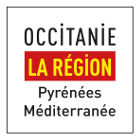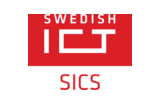Tutorials
The CP 2016 conference inaugurates five new paper tracks, the following four of which are supplemented by tutorials.
Topics in Computational Sustainability
- Tutor:
- Carla Gomes, Cornell University, Ithaca, NY, USA
- Abstract:
-
Computational sustainability is a new interdisciplinary research field with the overall goal of developing computational models, methods, and tools to help manage balancing environmental, economic, and societal needs for sustainable development. The notion of sustainable development — development that meets the needs of the present without compromising the ability of future generations to meet their needs — was introduced in "Our Common Future," a seminal report on the future of our planet, published in 1987 by the United Nations World Commission on Environment and Development.
We will provide an overview of the field of computational sustainability. We will highlight a number of examples related to our research on biodiversity and conservation, natural resource management, and energy.
We will also provide an overview of the computational challenges and methods for computational sustainability. Research in this area combines concepts and methods from constraint reasoning and inference, optimisation, decision making under uncertainty, machine learning, citizen science, crowdsourcing, and human computation.
Constraint Programming in Music
- Tutor:
- Charlotte Truchet, University of Nantes, France
- Abstract:
-
In classical Western music, when students learn how to write nice music, they are taught to respect a large set of rules: no parallel fifths, opposite movements between the extremal voices, cadence at the end of the piece, etc. Translated into a computer-science vocabulary, writing nice music is stated as a constraint problem, where the notes are the variables, the tempered scales are the domains, and the rules are the constraints (and, happily, this problem has lots of solutions). In practice, this problem, called automatic harmonisation, has been investigated since the very beginning of CP, back in the 1980s. Since then, CP has been applied to a great variety of musical problems, and used to produce score drafts, to organise sounds, to model musical properties, etc. In this tutorial, we will present an introduction to musical constraints, starting with automatic harmonisation, and then exploring examples in contemporary music and in sound processing. We will try and focus on the works where CP has been used in an unconventional way.
Social Choice
- Tutors:
-
Francesca
Rossi, University of Padova, Italy
K. Brent Venable, Tulane University, New Orleans, LA, USA
Toby Walsh, University of New South Wales, Sydney, Australia - Abstract:
-
The goal of this tutorial is to introduce social choice theory, a framework for analysing the combination of individual preferences to reach a collective decision. It will cover both applications of constraint programming to social choice, as well as applications of social choice in constraint programming.
Automated Program Analysis and Verification
- Tutor:
- Andreas Podelski, University of Freiburg, Germany
- Abstract:
-
We present a new paradigm for automated (algorithmic, push-button) program analysis and verification methods based on constraint solving and automata. The new paradigm is simple and accessible also to newcomers in the field of program analysis and verification.
A tutorial on the fifth new track, Bioinformatics and Constraints, was offered by Agostino Dovier (University of Udine, Italy) at CP 2015 (his slides are available).
If you want to offer an additional tutorial, then send your proposal by email to the CP 2016 Tutorials Chair (Pierre Flener) by Friday 1 April 2016.































